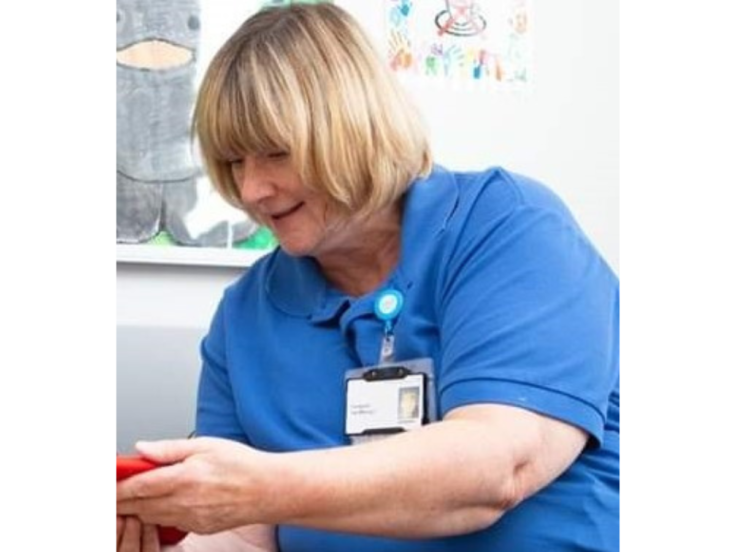10 October 2022
 Why Play Matters: Meet Steph
Why Play Matters: Meet Steph

Steph Fairbain has been a Health Play Specialist at Addenbrookes Hospital since 2007, and Therapeutic Play Manager there since 2016. Whilst technically she’s retiring, she’s very much staying in the world of therapeutic play. We caught up with as part of our Play in Hospital Week celebrations.
You weren’t always a play specialist, so what was it that led you into a career in therapeutic play?
I did some volunteering at a hospital in the 90s when I was running children’s centres, and I didn’t think I could cope with the structure of the NHS! But many years later, I found myself looking for something different which involved face to face work, but which would also challenge me – I had to fund my training myself through the health play specialist qualification!
You must have seen some changes to your profession since you started out, what’s one of the biggest?
Our training has really developed, and our registration is now pretty much aligned with nursing registration – it’s really robust now.
As soon as you use the word ‘play’ people don’t see a professionally qualified workforce, but there’s so much more to it!
We work with incredibly vulnerable children and their families at their most vulnerable time. If you’re working with families at their lowest ebb, you need a robust qualification and registration to ensure you’re fit to practice and to deal with complexities that those families bring.
You must have loads of memories of children you’ve met, but is there a story you’re particularly proud of?
It’s hard to choose – every family is unique and they’re all important!
One of the challenging ones I had was a patient who needed to have a bi-lateral amputation below the knee after being incredibly ill with meningitis. How do you prepare a child for waking up with their lower legs missing? It’s all very well to say “we’re going to take away your poorly legs and give you some nice new ones” – which was what was said! – and a child thinks they’re going to wake up with new legs. We know in reality that’s not the case.
I had to think about how to prepare the child, and a family that had no words to be able to explain the situation to their child themselves because it was so difficult to get their head around. Especially as their child had just come out of intensive care.
I saw her all the way through to discharge. She was completely resistant to even seeing a prosthetic leg at first – she wouldn’t be in the same room as one, so there was a lot of work to do!
I ended up writing an article on the experience for the NAHPS [National Association of Health Play Specialists] journal. It’s a piece of work which stretched me and which I’m really proud of. That’s what’s fantastic about the job – it calls upon your creative skills all the time.
We’re celebrating Play in Hospital Week. What does play in hospital mean to you?
Firstly, children’s right to play and to access activities is enshrined in our law in the Children Act. Article 31 is that children have a right to recreation, and Article 12 is that children and young people have a right to make decisions.
Play specialists help children understand their medical journey and be part of the process. Children and young people should have access to that, it supports their development and it supports their emotional wellbeing. Especially at the moment with all the issues we’ve had around mental health – and of course the theme for Play in Hospital Week is mental health.
And for me personally – it’s the one job where I can use all my skills. Working with a wide range of ages, using my management skills, and going right back to my initial training in theatre – there has been an occasion where I tap danced in a treatment room as part of distraction! Bringing so many previous professional and life skills together – that’s what makes it so fulfilling.

